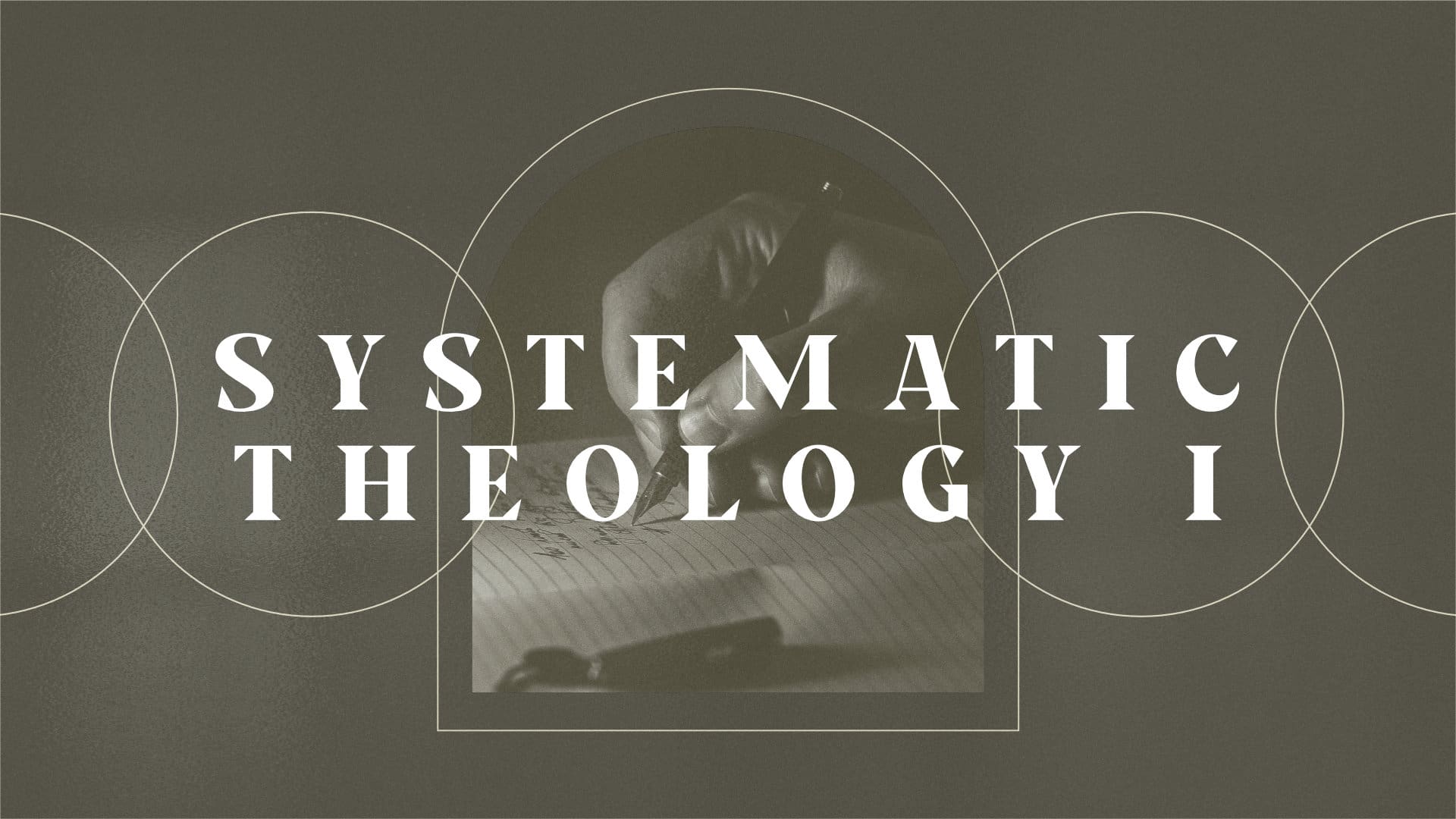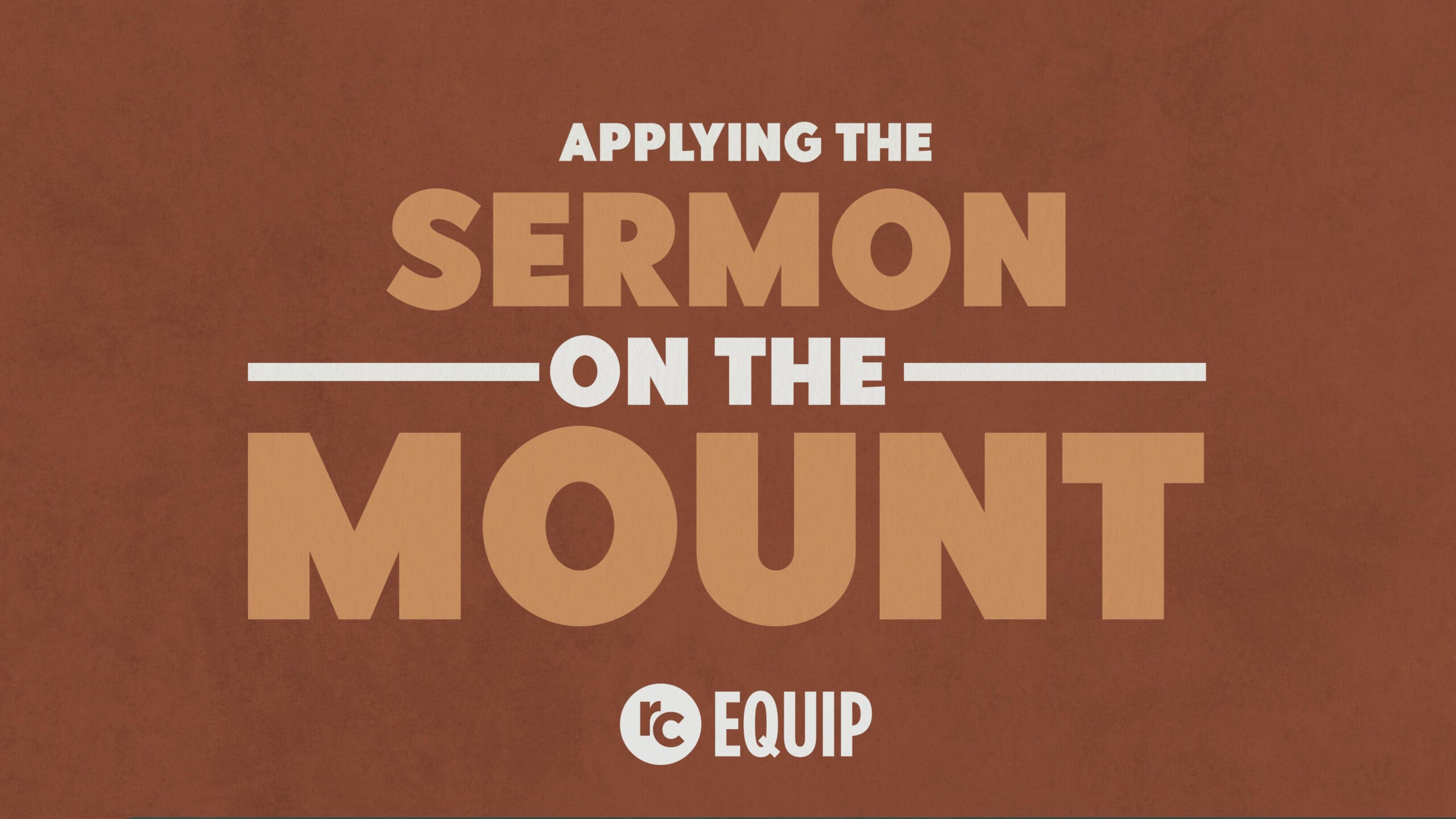The doctrine of the Trinity is a challenge for many believers, but this doctrine cannot be avoided. Seeking wisdom from the Scriptures and avoiding errors throughout history will help develop a biblical understanding of God the Father, God the Son, and God the Spirit.
- Doctrine of Simplicity: The confession that God is indivisible, in that he has no parts.
- Doctrine of Inseparable Operations: The confession that all three Persons of the Trinity work in every divine act.
- Divine Oneness: The confession that God is absolutely unique and free as being God alone.
- Divine Person: The relational distinction between Father, Son and Spirit in the Procession and the Mission of the Son and The Spirit.
- Divine Procession (Immanent): The inner relationships between each Person of The Trinity as in intra (i.e. internally).
- Divine Mission (Economic): The work and/or relationships of the Trinity as reveal ad extra (i.e. externally).
- Theosis: A Patristic doctrine which emphasized the union between God and man in God’s salvific work.
Theological Introduction
- Neglect of The Doctrine of The Trinity
- Christology: Often our treatments of the Trinity centers and flows from the Incarnation of the Son. In this fashion, our Doctrine of God and The Trinity become facets or sub-doctrines of Christology; however, not all is Christology. The proper placement of the Trinity, as foundation to the Doctrine of God is that all other doctrines flow from it, including our Christology.
- Mastery vs. Wonder: Contemporary epistemological systems view knowledge pragmatically, as lordship or mastery over a subject. “Knowledge is Power,” is the common dictum of our age. The Doctrine of The Trinity is not a pragmatic doctrine. In our Knowledge of God, we have no Lordship over the Triune God. As such, knowledge of God is born out of wonder of the God who reveals himself to be Triune. It is the listening of our ears and the confession of our mouths that God is One and God is Trinity.
“Then Sings my soul, my savior God to Thee, How Great Thou Art.”
~Carl Boberg & Stuart Hine
Old Testament & The Oneness of God:
“Hear, O Israel: The Lord our God, the Lord is One.” Deuteronomy 6:4
- Doctrine of God as Theological Grammar:
- Thomas Aquinas (1225-1274 A.D.)
- The Doctrine of Simplicity: The belief that God is indivisible, in that he has no parts.
- Thomas Aquinas: “God is not in a Genus” (i.e. a class of being that is common to other beings in a category).
“A thing can be in a genus in two ways; either absolutely and properly, as a species contained under a genus; or as being reducible to it, as principles and privations…But in neither way is God in a Genus.” ~ Thomas Aquinas, Summa Theologica, Prima Pars Q3.5.
The Declaration of God’s Oneness centers on his Unicity (i.e., Perfect Uniqueness) and His Aseity (i.e., His Perfect Freedom). To declare God is One is not to ascribe numeration of divinity, but rather to echo the voice of Scripture: He alone is God.
The Shema & Anti-Idolatry Polemics:
- Deut. 4-6: “Hear, O Israel: The Lord our God, the Lord is One.”
- Ex. 15:11: “Who is like you, O Lord, among the gods? Who is like you, majestic in holiness, awesome in glorious deeds, doing wonders?”
- Is. 44:6: “Thus says the Lord, the King of Israel and his Redeemer, the Lord of hosts: “I am the first and I am the last; besides me there is no god.
Old Testament Witness: Dual & Tri Theophanies
- Gen. 18-19; “Then the Lord rained on Sodom and Gomorrah sulfur and fire from the Lord out of heaven.” ~ Gen. 19:24
- Ex. 11-14; “Then the angel of God who was going before the host of Israel moved and went behind them, and the pillar of cloud moved from before them and stood behind them…” ~Ex. 14:19
- Angel of The Lord Passages [Ex. 3:2-6; Ex. 23:20-22; Judges 2:1-3].
Other Significant Passages:
- Gen. 1: Divine Communication as Trinity, “Let us make man in our Image…” Gen. 1:26a)
- Proverbs 8:22-31: Personified Wisdom
- Ps. 110:1 “The Lord says to my lord: ‘Sit at my right hand, until I make your enemies a footstool for your feet.’” [cf. Matt. 22:41-46]
The New Testament & The Trinity:
The Doctrine of The Trinity:
- Biblical Passages:
- Baptismal Formula: Matt. 28:19; [cf. Matt. 3:13-17]
- Pauline Triads: 1 Cor. 12:4-6; Eph. 4:3-6; [cf. Rom. 5:1-11; Titus 1-3]
-
- Procession (Immanent): The Inner life of the Trinity which constitutes the Eternal Relationship between God the Father, God the Son, and God the Holy Spirit.
- Mission (Economic): The work and revelation of the Trinity in the Divine Missions, which constitutes the sending of the Son from the Father, and the Holy Spirit from the Father through the Son.
- Distinction of Source: Father is the Uncreated, the Son is the Only Begotten, and the Spirit is Spirated.
- Distinction of Relation: “The lover, that which is beloved, and Love.” ~Augustine, De Trinitate, Bk. IX. Cap.1.2
That we worship one God in trinity and the trinity in unity,
neither blending their persons, nor dividing their essence.
For the person of the Father is a distinct person,
the person of the Son is another,
and that of the Holy Spirit still another.
But the divinity of the Father, Son, and Holy Spirit is one,
their glory equal, their majesty coeternal. ~ Athanasian Creed
- Johannine Language & The Incarnation:
- Theological Grammar: The eternal procession of the Son was described by the early church as “begetting.” Not in the sense that God had progeny as humans; but rather, that the divine essence of the Son is one and the same as the Father. Furthermore, in the Eastern tradition, God the Father was viewed as the source of the Triune Life, that is the source of the Son’s begetting and the Spirit’s spiration.
- Council of Nicaea (325 A.D.) declaration on The Son:
“And in one Lord, Jesus Christ, the Son of God,
begotten from the Father, only-begotten [μονογενης],
that is, from the substance of the Father,
God from God, light from light, true God from true God,
begotten not made, of one substance with the Father,
through Whom all things came into being,
things in heaven and things on earth,” ~Nicene Creed
- Passages: John 1:18, “No one has ever seen God; the only God [Gk. μονογενης] who is at the Father’s side, he has made him known [cf. Jn. 3:18; 1 Jn. 4:9].
- Relational Unity: The Father and the Son are unified in will [Jn. 5:19, 30]; in the knowledge of each other [Jn. 7:29; 10:17]; in their speech [Jn. 14:10, 17:8]; in their works [Jn. 5:21; 10:14]; and they are glorified in each other [John 14:13;17:5].
- Doctrine of Inseparable Operations: The Doctrine of Inseparable Operations teaches that all three Persons of the Trinity work in every divine act.
- Correcting Interpretive Heresies: The Sending of The Son as Spatial and The Cross as Split of Trinity
- The sending (i.e. descent) of The Son in the Incarnation was not spatial separation in that, while he is incarnate, he is in perfect union and spatial reality with the Father and the Spirit [cf. the use of “tabernacle/dwell” in Jn. 1:14; Is. 66:1]. For example, Paul’s use of the descent and ascent of the Son after the Cross [Eph. 4:8-10].
- The Cry of Dereliction at the Cross [Matt. 27:46; Mk. 15:34] does not mean that the Trinity is split at the Cross. There are two problems with this interpretation: 1) It rejects the Immutability of God in claiming that the divine nature changes. 2) Those who hold that because the Father is fully divine and the Spirit is fully divine, that the death of the Son does not constitute a change in divinity must maintain a separation of the divinity in the Trinity, which crosses the boundary into Tritheism. Contrary to this, Paul declares that the Son participates in His own resurrection, which is in line with the Doctrine of Inseparable Operations [cf. Rom. 8:9-11].
The Procession of The Spirit as Spiration:
“And when he had said this, he breathed on them and said to them, ‘Receive the Holy Spirit.’” John 20:22
- Relational Unity: The incarnation through the Spirit [Matt. 1:18; Lk. 1:35]; The Father gives the Spirit [Rom. 8:11; 1 Thess. 4:8; 1 Cor. 6:19; 2 Cor. 1:22; 2 Cor. 5:5; Gal. 3:5; 4:6]; The Spirit professes the Son [ 1 Cor. 12:3; Rom. 8:9; Gal. 4:6; Phil. 1:19]; Unity in Operations [ 1 Cor. 12:4-6; 2 Cor. 13:14].
- The Paraclete (Helper): He instructs [Jn. 14:26]; he is the Spirit of Truth [ Jn. 14:17; 15:26; 16:7, 13]; He indwells believers, convicting and sanctifying them [Rom. 8; Eph. 1:14; 2 Cor. 1:22; 2 Cor. 5:5; Gal. 5:13-25].
The Implications of The Trinity:
- Doctrine of Creation as Triune Operation:
- “He is the image of the invisible God, the firstborn of all creation. For by him all things were created, in heaven and on earth, visible and invisible, whether thrones or dominions or rulers or authorities—all things were created through him and for him.” ~Col. 1:15-16; cf. Proverbs 8:22-31.
- The Imago Dei [Gen. 1:26-28]: Being created in the Image of God means that we reflect our Creator in our own activities and call to community. Just as the Triune God is the God who is eternally in Loving Relation with Himself, we were created to be in loving-relation with our Creator, in relation with each other, and in relation with the rest of creation.
- Soteriology as Triune Operation & Relation:
- “I made known to them your name, and I will continue to make it known, that the love with which you have loved me may be in them, and I in them [Jn. 17:26].”
- Theosis: A Patristic view of salvation which emphasized our union with God in our salvation. “…by which he has granted to us his precious and very great promises, so that through them you may become partakers of the divine nature, having escaped from the corruption that is in the world because of sinful desire.” ~2 Peter 1:4
“For He was made man that we might be made God…” Athanasius, On The Incarnation, Cap. 54.3
- Ecclesiology & Triune Indwelling:
- The Church is the Communio Sanctorum (The Communion of Saints), indwelled and empowered by the Triune Spirit [1 Cor. 3:16; 12:3, 13; 2 Cor. 13:13; Eph. 2:22].
- Eschatology: “No longer will there be anything accursed, but the throne of God and of the Lamb will be in it, and his servants will worship him. They will see his face, and his name will be on their foreheads.” ~Rev. 22:3-4
Suggested Readings:
Patristic Sources:
- Athanasius. On the Incarnation.
- Augustine. On The Trinity.
- Novatian, On The Trinity.
- Tertullian. Treatise Against Praxeas.
Introductory Sources:
- Emery, Gilles. The Trinity: An Introduction to Catholic Doctrine on the Triune God. Washington D.C.: Catholic University of America Press, 2011.
- Fairbairn, Donald. Life in The Trinity. Downers Grove: Intervarsity Press, 2009.
- Sanders, Fred. The Triune God. Grand Rapids: Zondervan, 2016.
Advanced Resources:
- Aquinas. Thomas. Summa Theologica, Prima Pars.
- Ayres, Lewis. Nicaea and its Legacy. Oxford: Oxford University Press, 2009.
- Moltmann, Jürgen. The Trinity and The Kingdom. Minneapolis: Fortress Press, 1993.
- Rahner, Karl. Foundations of Christian Faith. New York: Crossroad Publishing, 2015.
- —–. The Trinity. New York: Crossroad Publishing, 1997.
- Schleiermacher, Friedrich. The Christian Faith. Berkeley: Apocryhile Press, 2011.
- Sonderegger, Katherine. Systematic Theology Volume 1: The Doctrine of God. Minneapolis: Fortress Press, 2015
- —–. Systematic Theology Volume 2: The Doctrine of The Holy Trinity; Processions and Persons. Minneapolis: Fortress Press, 2020Vidu, Adonis. The Same God Who Works All Things. Grand Rapids: Eerdmans Press, 2021.








